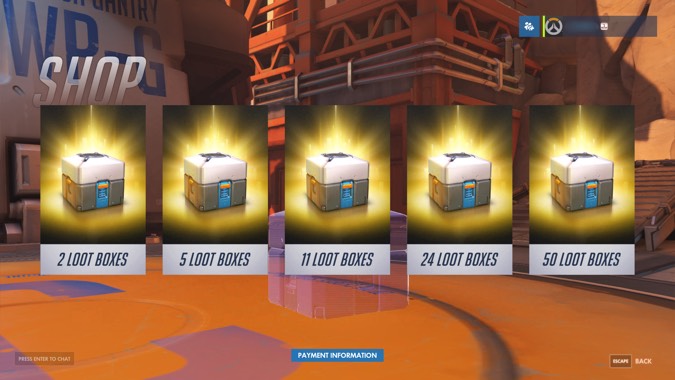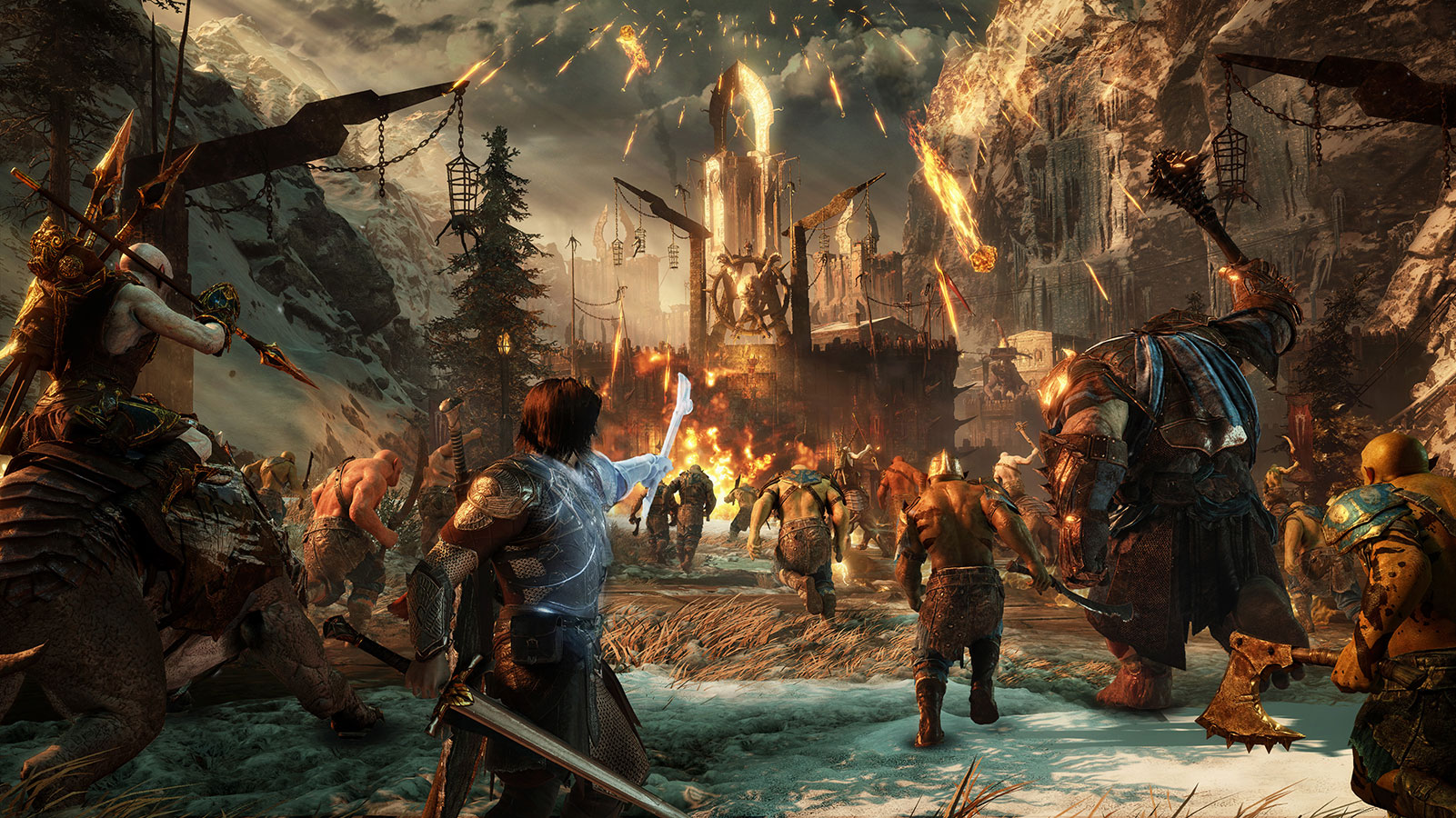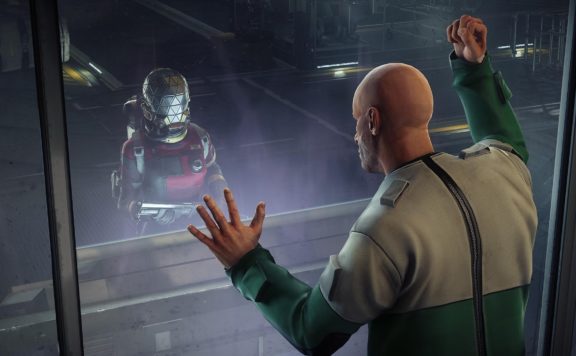“Loot boxes done right?” This is the subtitle of an IGN article detailing the loot box system in Ghost Recon: Wildlands. As I read this article, I became angrier and angrier. How can mainstream games media be this incompetent? How can they so thoroughly mislead consumers?
The obligation of media is to educate and inform consumers. This does not require the journalist to be a subject matter expert. However, what it does require is that the journalist have a modicum of basic critical thinking skills, the ability to see the big picture, contextualize that, and educate and inform the consumer.
The article in question does none of those things and does nothing to reverse my longstanding disdain for mainstream games media.
I wish I didn’t have to write an article like this. In a – well, I was going to say “perfect” but the world needn’t even be perfect – rational world, games media would be competent enough and possess the basic critical thinking skills required to educate and inform the consumer. We live in no such world.
Unfortunately, we live in a world where the mainstream games media is part of the problem, and yes, I include influencers and YouTubers as part of the media.
Let’s analyze just why this article and others like it are just a small representation of systemic incompetence and what can be done to fix the bigger issue if the issue can be fixed at all.

Image via Blizzard Watch
First off, loot boxes have no place in games. Let’s get this up front: loot boxes do affect gameplay. Developers/publishers wouldn’t include these things in games if they didn’t intend for them to affect gameplay.
Loot boxes frustrate you, artificially slow down progression/upgrades/mechanics, while psychologically manipulating you. Whether you agree with this or not, and whether you realize this or not, is irrelevant.
The very first paragraph from IGN’s article, literally the first paragraph, dismisses this notion and is perhaps the clearest view into the mindset of apologist gamers and incompetent media who seemingly defend such anti-consumer practices:
“Before we get too worked up, it’s worth noting that the items inside them have no effect on gameplay stats, and are cosmetic items for character customization. Phew!”
It’s almost as if games media is just blindly regurgitating what these publishers say on blog posts, with Ubisoft ensuring that crates will have, “have zero impact on gameplay and player’s progression,” and will be “fair in terms of the items given to players.”
This is perhaps the biggest “defense” I see whenever apologists and thralls defend loot boxes.
Oh it’s just cosmetic! It doesn’t affect gameplay!
No. Cosmetics are part of the gameplay. Think of how much time gamers spend customizing their characters in a game like Destiny 2. Cosmetics inherently inhabit the minds of consumers, providing them fun, a sense of joy, individuality, and, perhaps most importantly, ownership. Moving cosmetics behind loot boxes directly affects gameplay.
To provide further context, let’s take a look at Overwatch.
Overwatch is perhaps the perfect modern example of how loot boxes and “it’s just cosmetic” utterly collapse when observed through the lens of the consumer. (A reminder, this is the only lens a journalist in games media should observe, analyze, and report on the industry to the consumer.)
The only mark of progression in Overwatch is cosmetics which you get via loot boxes. Make no mistake, progression is gameplay. Those loot boxes can be purchased. So yes, loot boxes directly affect the gameplay, frustrating the player with slow leveling, and low drop rates. These systems were deliberately designed this way. These systems directly affect gameplay.
Again, whether or not you agree with this is irrelevant.
IGN’s article continues, appearing genuinely celebratory:
“It gets better with confirmation that there are no duplicates in crate type. You’ll only ever get items that you don’t already own.”
It gets better.

Image via Ubisoft Blog
Another extremely popular site, Kotaku, adopted a similar mindset when reviewing Middle Earth: Shadow of War.
“I liked their inclusion as a means to gain more loot and orc minions, and I appreciated that you can buy at least a few kinds of boxes without spending a dime. I found that, through the normal course of play, I could afford a bevy of boxes that bolstered my ranks. It was a time-saver that saved me a few seconds if my orc ranks were depleted and I didn’t feel like recruiting new ones in the world. Instead of wasting time-fighting yet another orc, I could just buy a box using the ample amounts of in-game cash I’d amassed and get some cool new additions to my roster. Given that Mordor’s whole spiel is that orcs are endless, the gacha-like quality of loot-boxes is a good fit. It also helps that you can earn loot boxes by doing daily challenges, or ‘online vendettas’ where you kill the nemesis of players around the world. Plus, the player you help out also get bonuses. It’s possible that the post-game portion of Shadow of War, or the online castle sieges, push players more toward microtransactions and instills more of a desire to use loot boxes. We’ll report back on this next week, once we’ve spent more time on these sections of the game. But so far, during the lengthy main questlines, the temptation or necessity of spending actual money never happened in my game.”
Wow.
This hits on two others popular “defenses” of loot boxes I’ve seen uttered from apologists and thralls.
They’re just options, no one is forcing you to buy them, and, It saves me time.
Let’s start with “they’re just options.”
Microtransactions and loot boxes prey on the addictive tendencies of people. So not forcing you to buy them is completely 100% irrelevant. They are always there, tempting you, psychologically manipulating you. Whether you agree with this or not is irrelevant. It doesn’t change this fact. This is just wrong.
Imagine standing next to a recovering cocaine addict and constantly showing him some cocaine. It’s completely messed up, right? You’re not forcing him to buy it. But you are tempting him with something he clearly is trying to recover from. This is no different.
The, “it saves me time,” defense is just as bad. Here’s how this one utterly collapses.
Think about what this says. Whenever a game developer or publisher says this, they are admitting that the game they built isn’t worth the gamer’s time. How shameless and insecure must these developers and publishers be to even suggest this?

Image via Shadow of War
When taken as a whole then, these mindsets are all part of a dangerous tone being put forth and propagated by extremely popular, highly visible, and most importantly, influential sites and personalities.
We’re in this situation because games media and consumers will continue to defend these anti-consumer practices. We’re in this situation, because upon seeing this apathy and defense, publishers and developers push just a little more, push just a little further.
Average consumers, who inherently look to games media for information, will see this tone and adopt it. They’ll see their favorite personalities seemingly shrug off anti-consumer practices and thus, adopt this behavior and mentality for their own. This, in turn, creates an incompetency within consumers which can be directly traced back to games media.
This is completely unacceptable and downright shameful. This is games media being part of the problem.
So then, what are the solutions? More importantly, is it even realistic to look for a solution?
In an industry driven by consumerism, I do believe there is a solution to this games media problem. Like I stated at the top, the obligation of media is to educate and inform consumers. This requires a basic level of critical thinking skills and competency. Thus, it stands to reason that the journalists whose job it is to educate said consumers have some basic modicum of intelligence and competence.
Simply put, get rid of those without this basic competency and hire those that do.
I fully realize this is much easier said than done, and I am not naive enough to think this is even remotely realistic, but that’s not my point. I firmly believe that we’re at a point where this incompetency is a systemic problem, one that requires a systemic solution.
Think about what this would allow.
Imagine an industry where influential games media genuinely looked out for the consumer instead of blindly regurgitating talking points from publishers. Imagine if games media actually got it. Imagine if games media possessed the basic competency and critical thinking to fully analyze situations to legitimately educate the consumer.
Imagine a world where, instead of being part of the problem, games media were the solution.








Brian The Witcher
I still like lootboxes because they’re just cosmetic and don’t affect gameplay, they aren’t forcing me to buy them, and it saves me time. Grow up.
Stas Ch
did you even read the article you bellend?
Brian The Witcher
yeah, why?